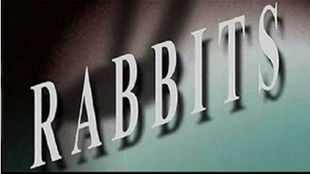Introduction:
Hook fishing, an ancient and beloved method of angling, has stood the test of time due to its simplicity and effectiveness. Whether you're a seasoned angler or a beginner looking to master the art of hook fishing, understanding the right techniques can make all the difference. In this article, we delve into the essential techniques for successful hook fishing, from choosing the right gear to mastering the art of casting and retrieving.
Choosing the Right Gear:
The foundation of successful hook fishing lies in selecting the appropriate gear. Here are some key elements to consider:
a. Rod and Reel:
- Choose a rod and reel that match the type of fish you're targeting. For smaller fish, a lightweight rod and reel will suffice, while larger fish may require a heavier setup.
- Ensure the rod is flexible enough to handle the fight without breaking, and the reel has a smooth drag system to prevent line breakage.
b. Line:
- Use a monofilament line for general hook fishing, as it's strong, flexible, and easy to handle.
- The line's thickness should be appropriate for the fish you're targeting, with a general rule of thumb being the thicker the line, the stronger it is.
c. Hooks:
- Select hooks that are the right size for the bait you're using and the fish you're targeting.
- Ensure the hooks are sharp and properly seated in the bait to increase the chances of a successful catch.
d. Bait:
- Choose bait that is naturally attractive to the fish you're targeting. Live bait, such as worms or minnows, can be highly effective, but artificial lures can also be used depending on the situation.
Casting Techniques:
Casting is a fundamental skill in hook fishing. Here are some tips to improve your casting technique:
a. Practice Casting:
- Spend time practicing your casting technique to develop a smooth, accurate throw.
- Pay attention to your grip, stance, and the angle of your arm during the cast.
b. Aim for Precision:
- Aim for a precise target to increase your chances of a successful cast.
- Consider the wind direction and adjust your casting angle accordingly.
c. Control Your Line:
- Maintain control over your line during the cast to avoid tangles and to ensure a smooth presentation.
Retrieval Techniques:
Once you've cast your line, the next step is to retrieve it effectively. Here are some retrieval techniques to consider:
a. Natural Retrieval:
- For certain baits, such as live worms, a natural retrieval that mimics the bait's movement can be highly effective.
- Allow the bait to fall and then gently twitch it with your rod tip to simulate natural movement.
b. Fast Retrieval:
- For some fish, a faster retrieval can be more effective, as it can trigger strikes from aggressive fish.
- Keep your rod tip high and retrieve the line quickly, allowing the bait to dart through the water.
c. Slow Retrieval:
- For other fish, a slower retrieval can be more successful, as it allows the bait to settle and attract the fish's attention.
- Move the bait slowly, allowing it to sink and then rise in a steady, deliberate motion.
Reading the Water:
Understanding the water you're fishing in is crucial for successful hook fishing. Here are some tips for reading the water:
a. Observe the Water:
- Pay attention to the water's surface, looking for signs of fish activity, such as ripples, boils, or fish feeding.
- Observe the bottom of the water, as fish often hold in specific areas, such as rocks, logs, or weed beds.
b. Use Your Senses:
- Use your senses to detect changes in the water, such as temperature, pressure, or scent.
- Be aware of any changes in the water's clarity, as this can indicate the presence of fish.
Patience and Persistence:
Lastly, successful hook fishing requires patience and persistence. Here are some tips to keep in mind:
a. Be Patient:
- Fish may not bite immediately, so be patient and wait for the right moment to set the hook.
- Pay attention to your rod's movement, as a subtle tap can indicate a fish taking the bait.
b. Be Persistent:

- If you're not having success, try changing your bait, location, or retrieval technique.
- Remember that fishing is a process, and success often comes with time and practice.
Conclusion:
Hook fishing is a rewarding and enjoyable pastime that can be mastered with the right techniques and a bit of patience. By choosing the right gear, mastering casting and retrieval techniques, reading the water, and maintaining a patient and persistent attitude, you'll be well on your way to becoming a skilled hook fisherman. Whether you're targeting freshwater or saltwater fish, the principles remain the same, and with practice, you'll be able to enjoy the thrill of the catch. Happy fishing!












